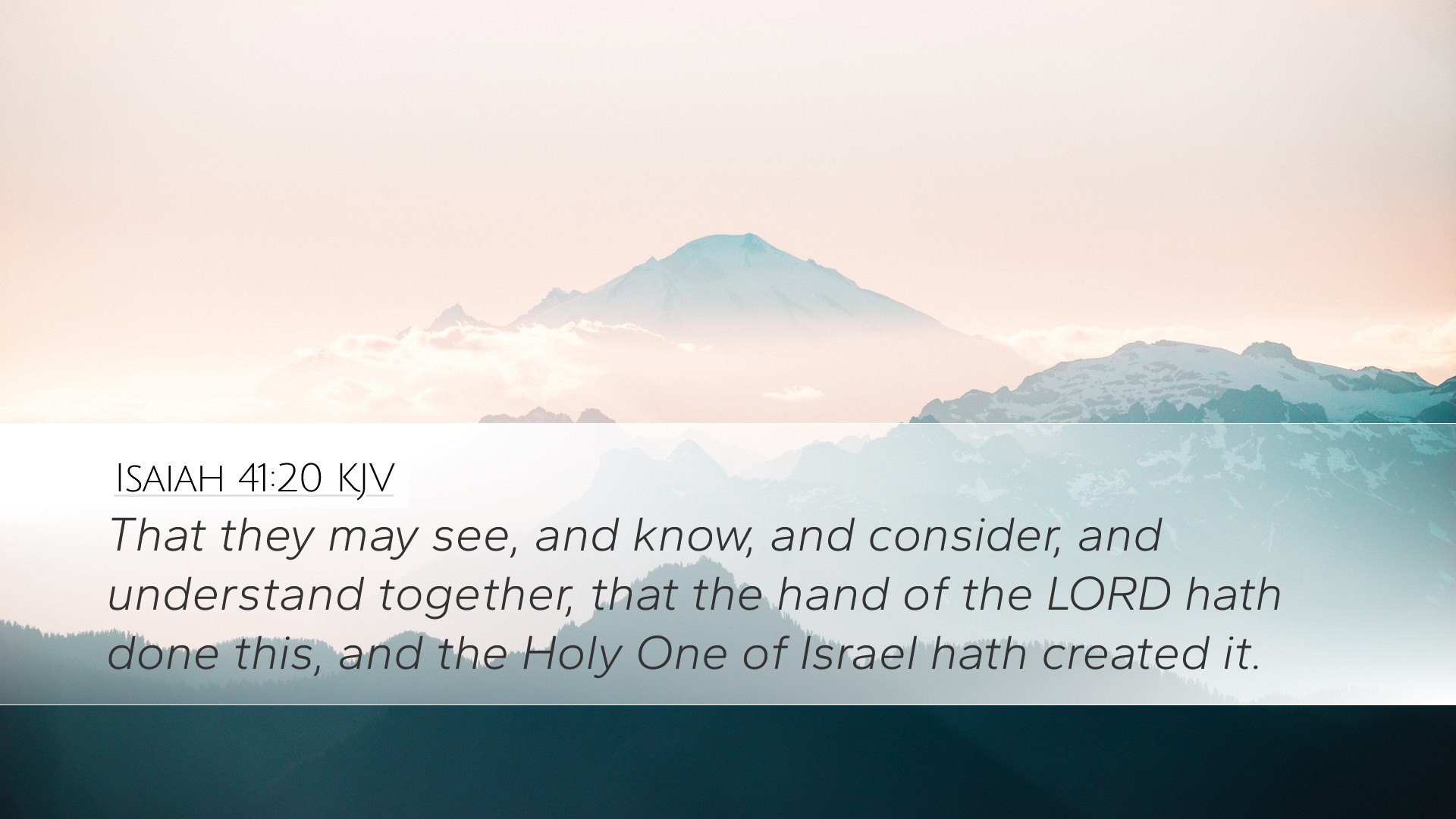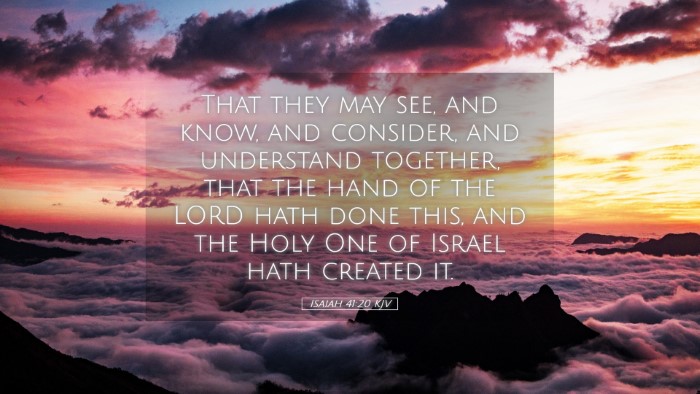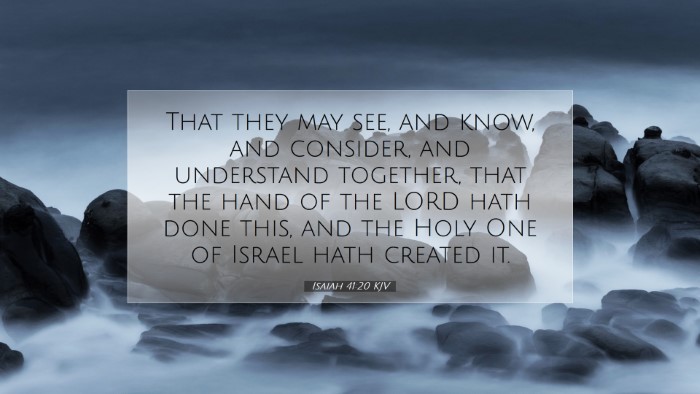Commentary on Isaiah 41:20
Verse: "That they may see and know, and consider, and understand together, that the hand of the LORD hath done this, and the Holy One of Israel hath created it."
Introduction
Isaiah 41:20 presents a profound declaration of God's omnipotence and creativity, emphasizing the purpose behind His actions as a means for humanity to recognize His divine authority. This verse forms part of a broader discourse where God reassures His people of His presence and power amidst their challenges. The insights from various public domain commentaries provide a rich tapestry of understanding for pastors, theologians, and students alike.
Contextual Background
Isaiah, known as the "Evangelical Prophet," spoke to a people who were often caught in despair due to exile and oppression. The context of this verse lies in God's promises of restoration and His repeated assurances that He will deliver His people from their adversaries. The promise is not solely for physical deliverance but also for spiritual enlightenment.
The Divine Purpose
According to Matthew Henry, the purpose of God's works is multifaceted; they are meant to evoke recognition and acknowledgment among both the Israelites and the nations at large. The emphasis on seeing, knowing, and understanding signifies a progressive revelation where knowledge leads to comprehension of God's nature and deeds. A theological reflection suggests that the works of God are intended to guide humanity toward a deeper relationship with Him.
Seeing and Knowing
Henry draws attention to the necessity of perception and understanding in faith. Without seeing God's hand in the world, people remain oblivious to the truth of their existence. This notion resonates with the teaching of Albert Barnes, who points out that the divine acts are self-evident, but they require the seeker’s attentive heart and mind to discern their significance.
The Nature of God’s Actions
Isaiah highlights that what unfolds in the world is a product of divine orchestration. Adam Clarke notes that the phrase "the hand of the LORD" symbolizes God's active involvement in creation and history. This portrays God not as a distant observer but as an engaged creator, intimately involved in the lives of His people.
The Holy One of Israel
The title "the Holy One of Israel" carries deep significance. It denotes the purity, separateness, and sovereignty of God, setting Him apart from all false deities. Barnes emphasizes that recognizing God’s holiness compels a response of reverence and awe, resulting in worship and submission.
Implications for Believers
This verse invites believers to a contemplative stance toward God's works. As pastors and theologians reflect upon these divine truths, several implications emerge:
- Awareness of God’s Presence: Understanding that God’s actions in our lives are deliberate encourages believers to look for His hand in daily events.
- Call to Witness: Just as the Israelites were to be a light to the nations, believers today are called to testify of God’s workings and their implications for salvation.
- Encouragement Amidst Trials: This verse serves as a reminder that God is working for the good of those who love Him, especially in times of distress or uncertainty.
Conclusion
Isaiah 41:20 encapsulates a vision of divine sovereignty and creative power. The various insights from Henry, Barnes, and Clarke enrich our understanding and challenge us to engage with the text on a personal level. As we consider the divine hand at work in our lives, let us strive to see, know, and understand together, recognizing our place within the grand narrative of God’s creation and redemptive plan.
Reflection Questions
- In what ways have you seen the hand of God at work in your life or community?
- How can acknowledging God's sovereignty change the way you respond to life’s challenges?
- What steps can you take to share the knowledge of God’s goodness and power with others?


